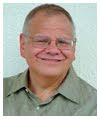Anonymity - Guidelines for Public Figures
Gorski Books: www.relapse.org (Gorski's Book: "Understanding the Twelve Steps")
Gorski Training: www.cenaps.com
Free Downloads: www.tgorski.com
Gorski on Facebook: http://www.facebook.com/pages/Terry-Gorski/139026002796579
I would like to start this discussion of anonymity for public figures by reviewing what the Big of Alcoholics Anonymous (AA) says about "anonymity." The topic is covered under Tradition Eleven and says: "Our relations with the general public should be characterized by personal anonymity. We think the A.A. ought to avoid sensation advertising. Our names and pictures as A.A. members ought not be broadcast, filmed, or publicly printed. Our public relations should be guided by the principle of attraction rather than promotion. There is never need to praise ourselves. We feel t better to let our friends recommend us."
So here are the key point from Tradition Eleven: As a member of A.A. (and other 12-Step Programs):
1. We ought to avoid sensation advertising.
2. We should not publish our names and pictures as A.A. in the media
3. We should not be broadcast, filmed, or publicly printed about as a member of A.A..
4. Our public relations should be guided by the principle of attraction rather than promotion.
5. There is never need to praise ourselves by using our affiliation with A.A..
6. WE should let our friends recommend us based upon the positive changes they have seen in us as a result of working the program.
These are easy principles to talk about, but become difficult for addiction professionals and people who earn their kiving as publics figures. I would like to share how I have interpreted and practiced anonymity as an addiction professional who has become a public figure as an author, lecturer, and trainer. I don't claim to be right - this is simply my best understanding that I have used to guide myself through the difficult waters of anonymity throughout my career. These guielines will need to adapt as the internet, blogging, social networking and other electronic media are used more extensively by recovering people to form in "virtual recovering communities" to support each other in recovery. A key question, for example, the answer to which I am not sure, is this: Does this publicly available blog represent a break in personal anonymity.
Let explain my thinking.
Anonymity, in my understanding, means that we don't reveal our personal 12-Step membership at the level f the press or media. This principle exists so we can put the principles embodied in the 12-steps before the individuals who practice the twelve steps. We never want the overall effective of AA to be judged on the behavior of one person. We want 12-Step programs judged in their entirety as a way to learning how to live in a sober and responsible manner.
Anonymity does not mean we cannot talk objectively about twelve-step programs and the powerful impact they have on recovery in this country and around the world. We can also strongly support t2-Step programs as a major asset managing the growing epidemic of alcoholism and other drug addictions.
12-Step programs have been examined in objective scientific studies that show them to be the single most effective (if only one approach to recovery is used), least expensive and most readily available programs of recovery from alcoholism and drug addiction.
Anonymity is a necessary but difficult principle to follow. I d public speaking and some media work and it can be difficult to keep my anonymity intact while still endorsing AA and other 12-Step programs as something that really works.
If I am asked if I am a member or attend meetings my response is: "Even if I were, the principle of anonymity would prevent me from talking about that - but I believe everyone can benefit from the practical spiritual principles embodied in the twelve steps.”


No comments:
Post a Comment